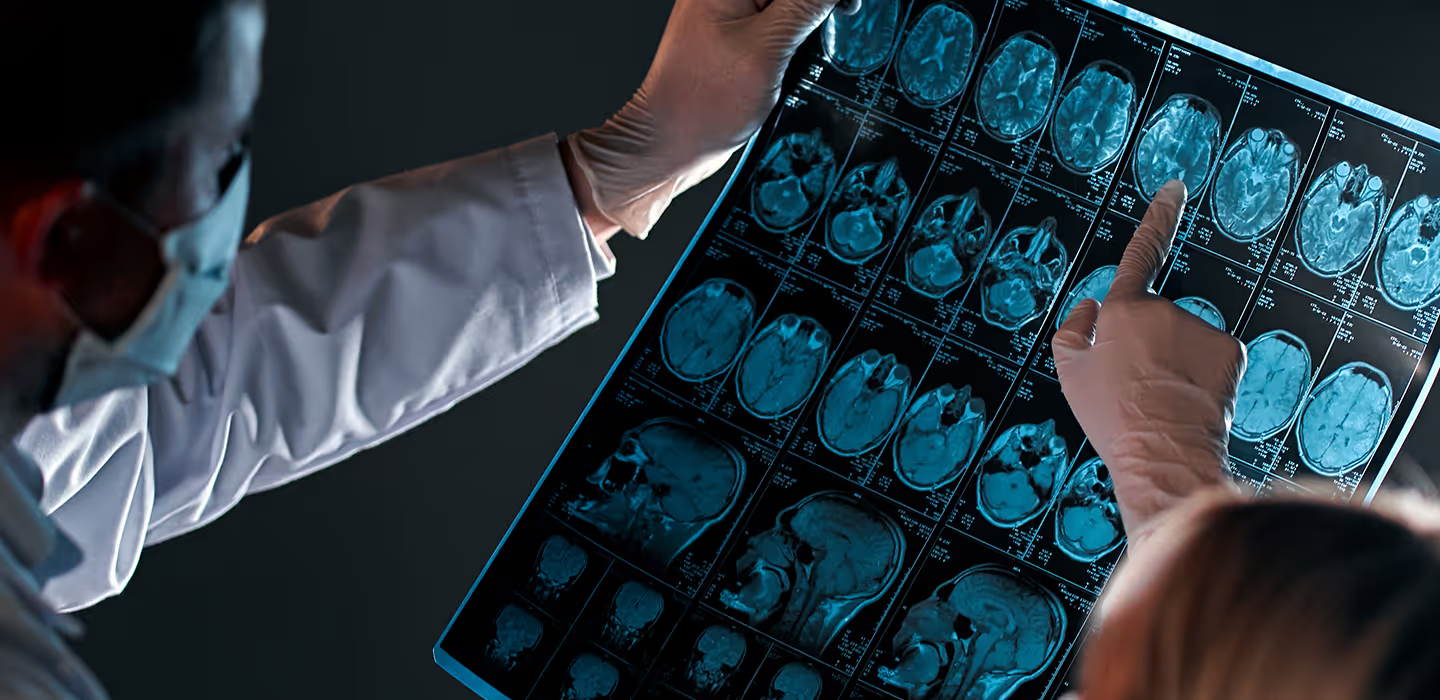Charcot Fund: fundamental research
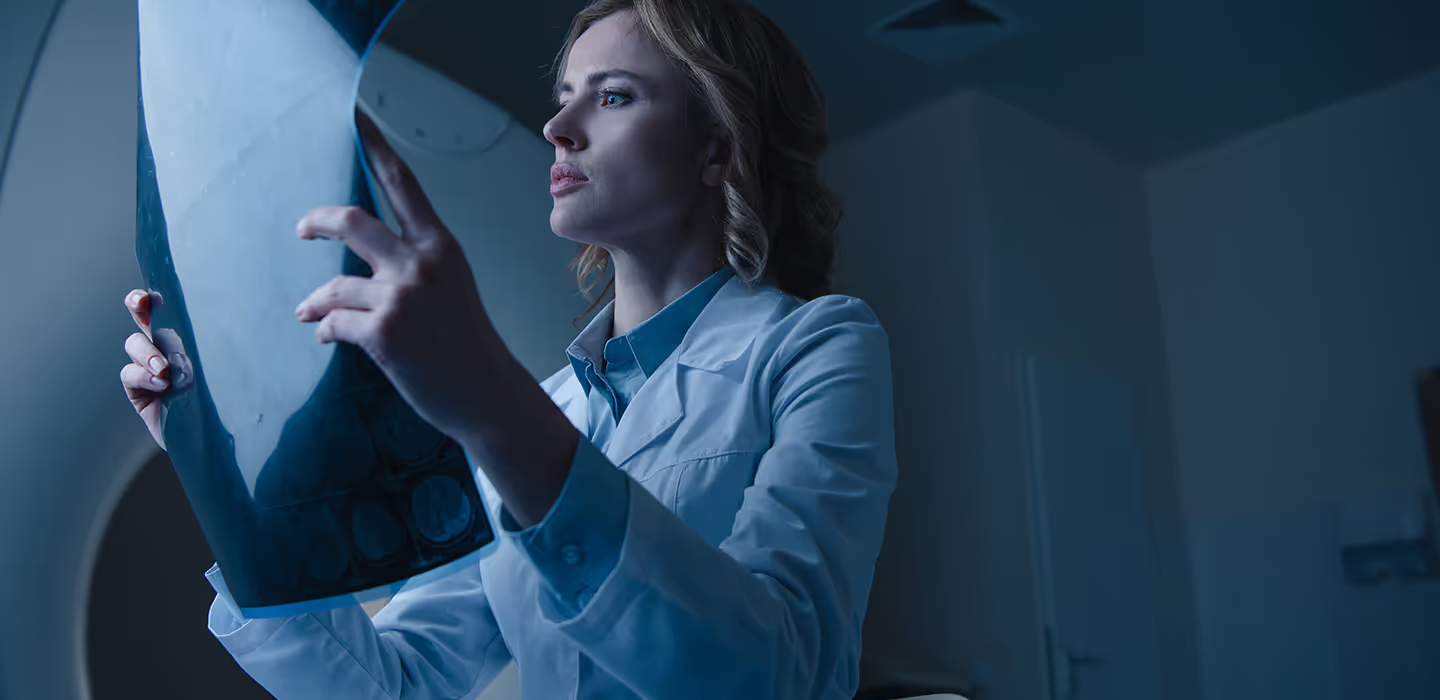
A jury of experts And innovative projects
In academic laboratories and research centers, budgets for research into multiple sclerosis exist but are limited. Every year, research teams look to the Belgian Charcot Foundation.To strengthen and stimulate multiple sclerosis research in our country, the Belgian Charcot Foundation has decided to increase the total amount of subsidies to be distributed.
The Charcot Fund 2026 for basic research is set to € 300,000 to be allocated to projects likely to advance the treatment of multiple sclerosis.
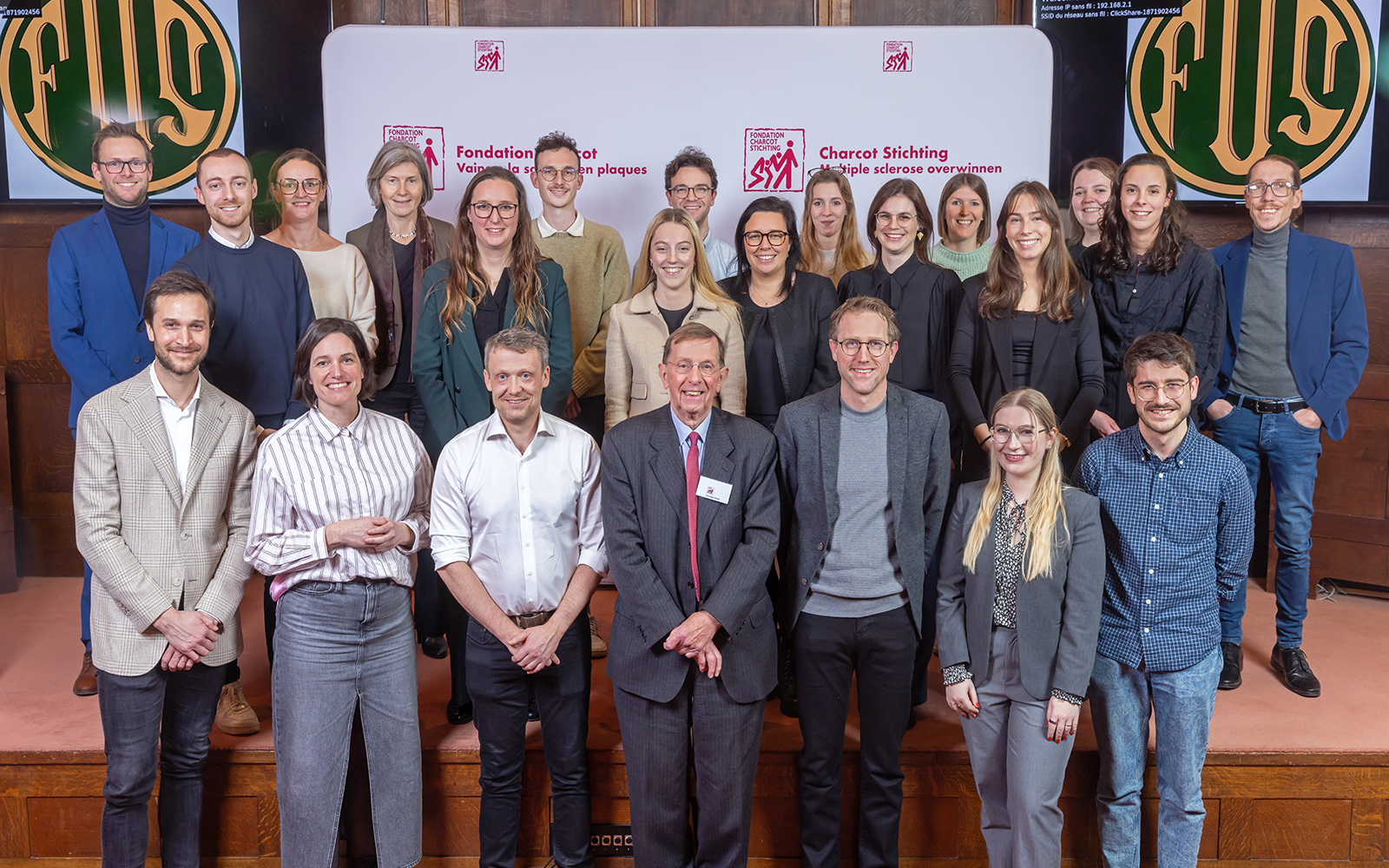
These subsidies are managed by universities or hospital centers according to the same rules and procedures as the subsidies allocated by the National Fund for Scientific Research.Since its creation 30 years ago, the Charcot Fund has supported more than 200 researchers and / or research teams in 27 renowned university laboratories * in Belgium.
*Laboratory of Experimental Hematology — U Antwerpen, Biolmaging Laboratory — U Antwerpen, In Vivo Cellular and Molecular Imaging Center — VUB, BIOMED — U Hasselt, Laboratorium voor Neuroimmunology — KULeuven, GIGA Neurosciences, GIGA Neurosciences — University of Liège, University of Liège, University of Liège, Center for Neurosciences, Center for Neurosciences — VUB, Nationaal Multiple Sclerosis Centrum — Melsbroek, Department Molecular Biomedisch Onderzoek ek- VIB/UGent, UZ Brussel, Belgian MS Study Group, Belgian MS Study Group, Department of Neurology — UCL St Luc, Institute of Cellular Pathology — UCL, FASC Unit — VUB, Microbial Pathogenesis Unit — UCL, Unit of experimental medicine — UCL, REVAL — U Hasselt, Rega Institute for Medical Research — KUL, Dienst Hematology — U Antwerpen, Center for Cellular and Molecular Neurobiology — University of Liège, Department gezondheidszorg — U Hasselt, Department gezondheidszorg — Provincial Hogeschoool Limburg, Rega Institute for Medical Research — KUL, Dienst Hematology — U Antwerpen, Center for Transmolecular Biology — University of Liège, Department gezondheidszorg — Provincial Hogeschoool Limburg, Provincial Hogeschoool Limburg, University of Liège Gene Technology and Gene Therapy — KUL, Faculteit Bewegings-en Revalidatiewetenschappen — KUL, Dr. Willems Instituut — U Hasselt, Neuroanatomy Laboratory — University of Liège
Laureates 2025
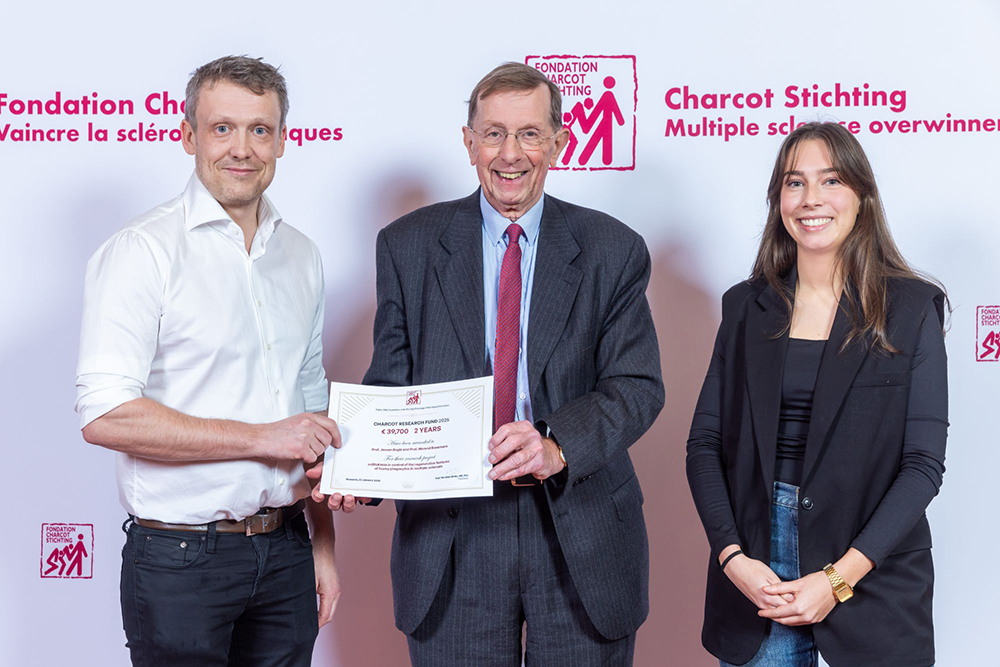
Can a Tiny Molecule Help MS Recovery?
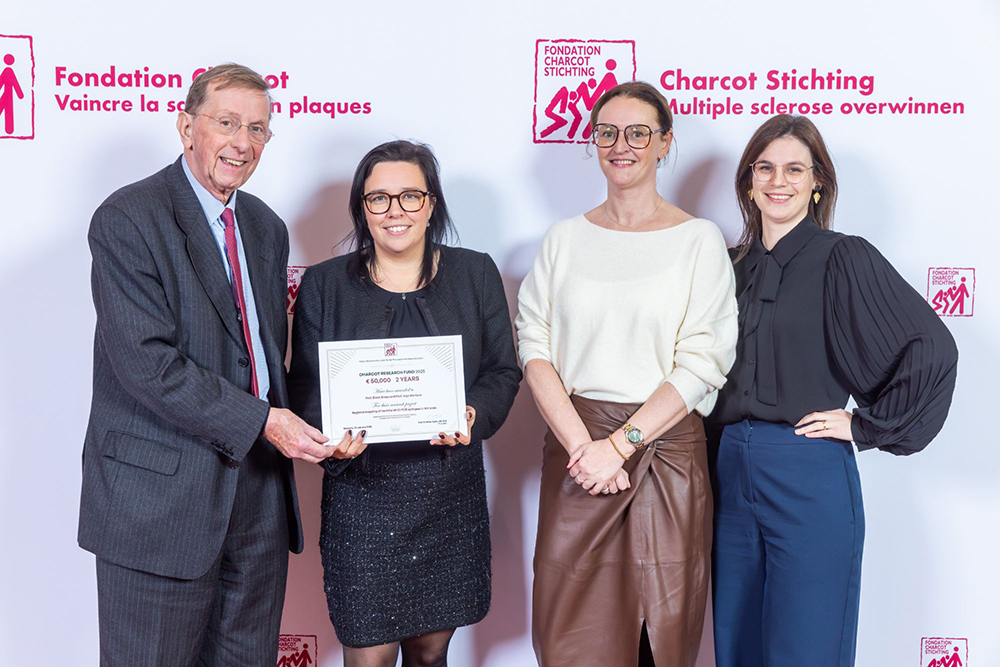
Mapping Immune Attacks in MS brains
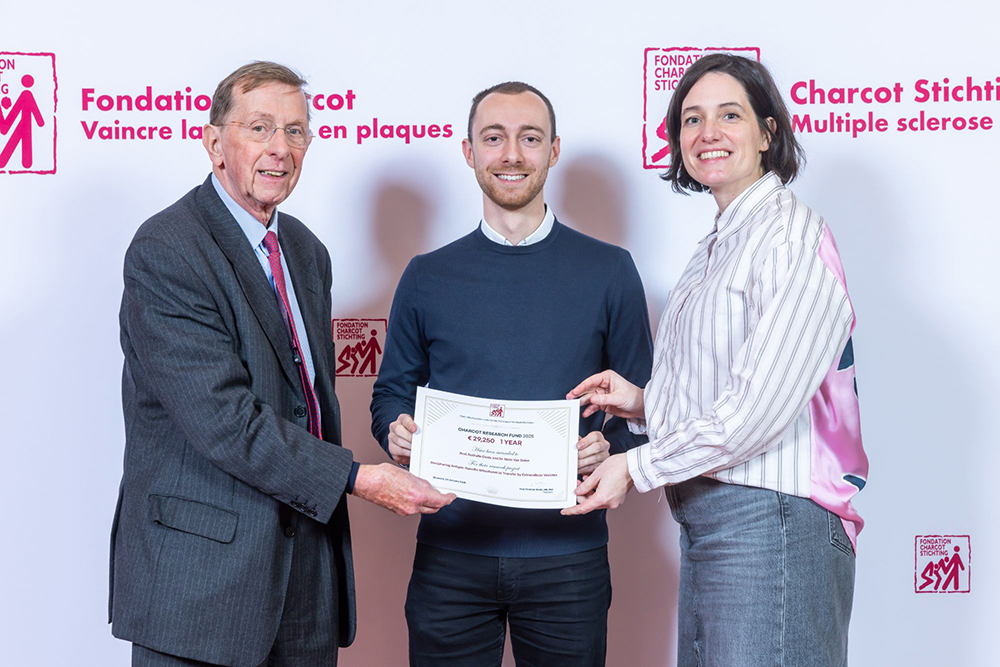
Harnessing Cell Particles to Combat MS
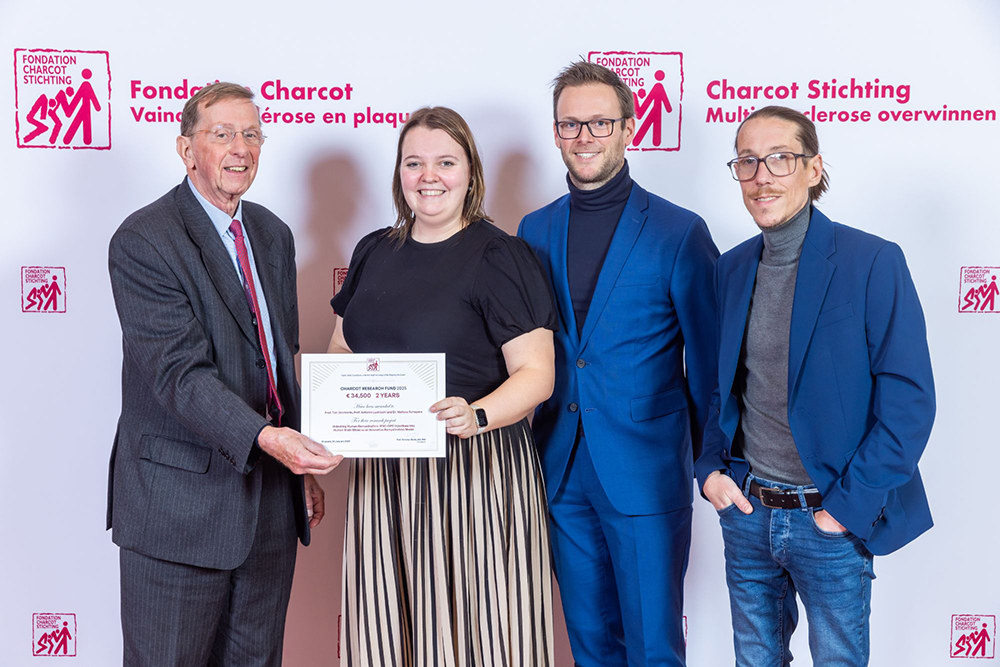
Building Better Models to Study Myelin Repair in MS
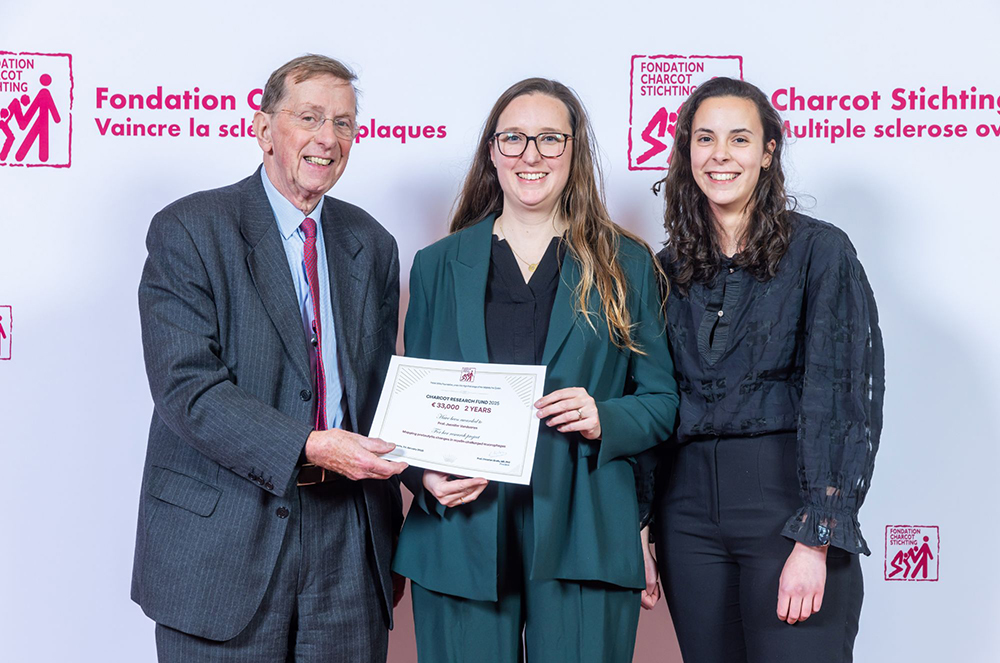
Understanding how immune cells both harm and heal in MS
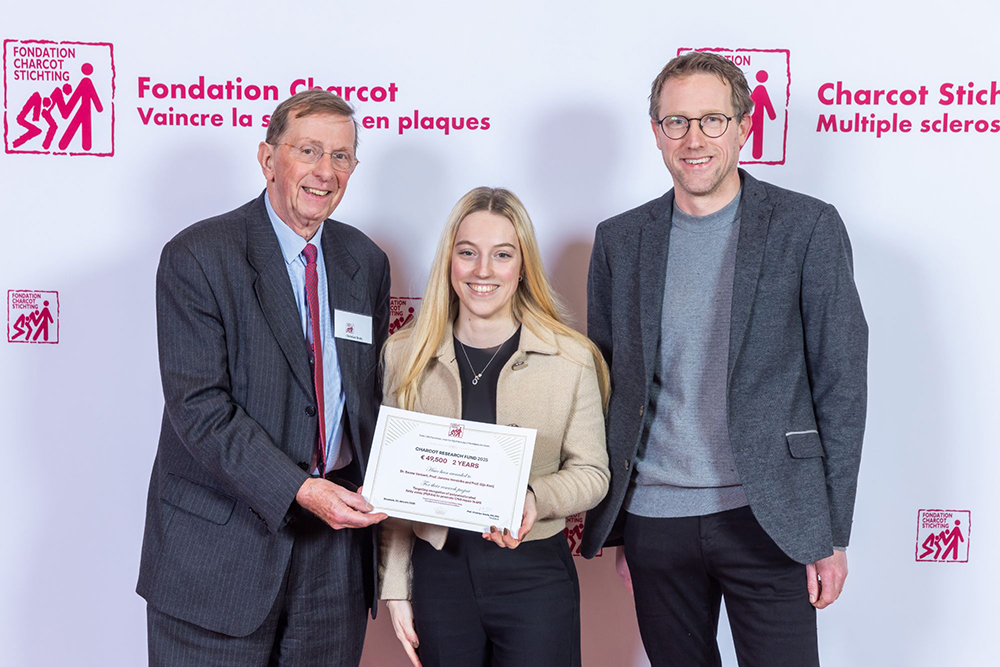
How Lipids Could Hold a Key to MS Repair
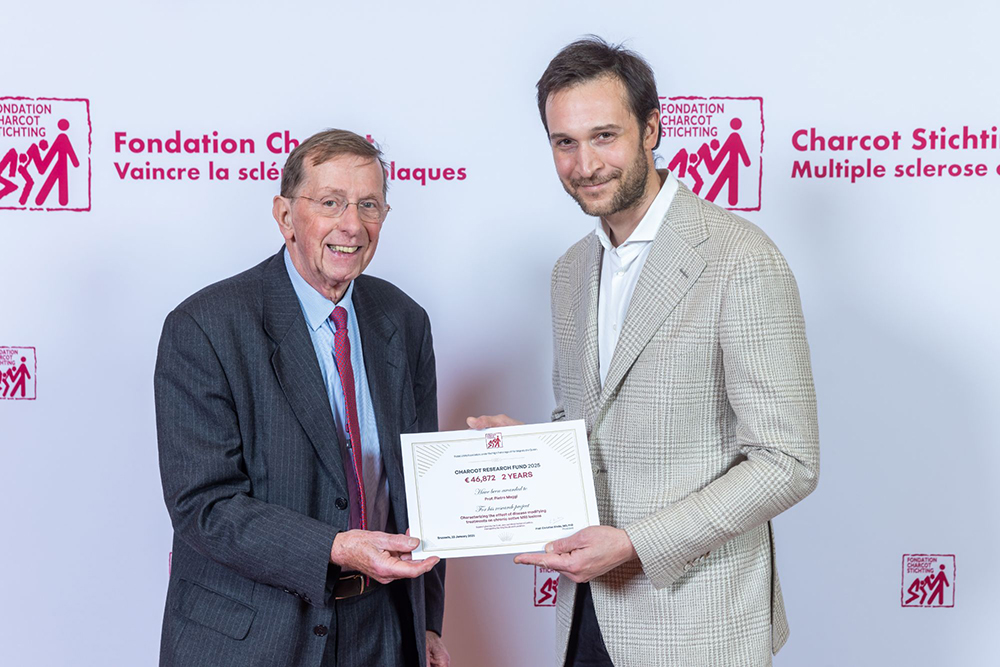
Targeting Aggressive Brain Lesions in MS: A New Approach
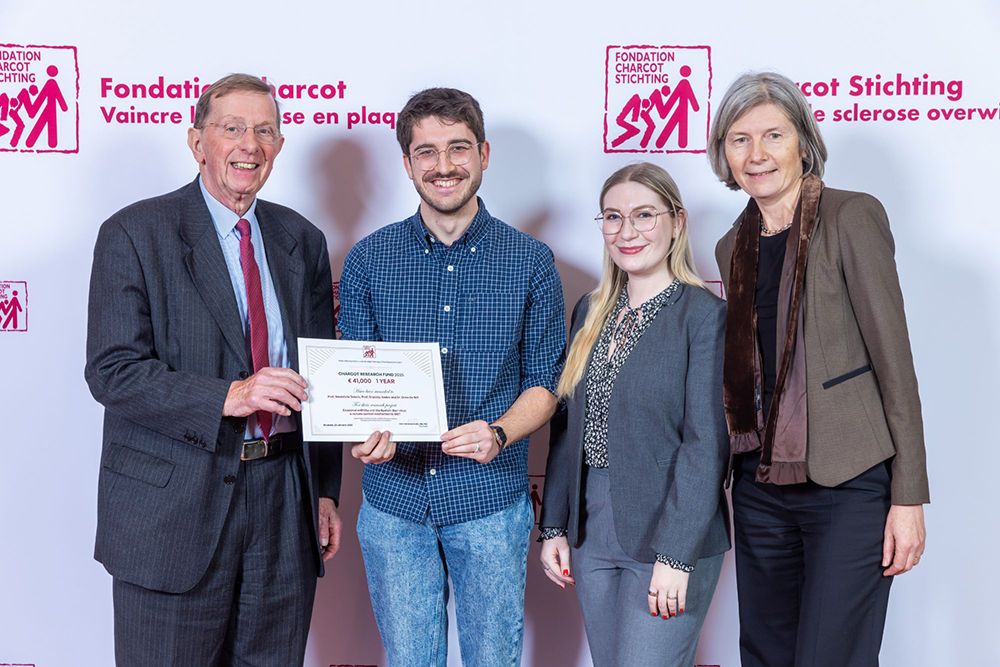
Could a Common Virus Help Diagnose MS?
Charcot Fund Regulations
1. The Charcot Research Fund (FRC) is an annual grant that the Belgian Charcot Foundation (FC), a public utility foundation, makes available to researchers (or groups of researchers) working in a Belgian institution, whose work focuses on clinical or fundamental questions related to the mechanisms and/or treatment of multiple sclerosis (MS). The selection of the works is made by a jury organized by the FC scientific committee. In accordance with the statutes, the Chairman of the FC Management Committee informs the Chairman of the FC Scientific Committee of the amount of grants available. The announcement to the scientific and medical communities was made at the end of June by post and email using a poster published by the FC.
2. Candidates must submit their application to the online platform www.belgiancharcotfoundation-research.be before midnight on 30 September. Paper application will no longer be accepted. The application must be written in English. The following documents must be included in the application:(a) the curriculum vitae of the candidate or candidates. The candidate ‘principal investigator’, who is responsible for the project, must hold a PhD at the time of submission;(b) a detailed description of no more than four pages covering the research that will be carried out with the help of the BCF;(c) an abbreviated list of the most important publications related to the described research which the candidate(s) would have already published.
The application must also specify the allocation that will be given to the grant awarded and justify the amount of the grants requested. The grant can be used for the purchase of equipment, laboratory reagents and the possible hiring of additional technical staff. Salaries for scientific staff cannot be covered. Secretarial or travel expenses cannot be covered. The request must specify the person (hereinafter referred to as the “Principal Investigator”) who is authorized to receive all correspondence. It will also indicate the account to which the payment of the grant granted must be made. The principal investigator will indicate whether he intends to fund the research project only through the FC grant. A project requiring particularly significant funding may be spread over two years or financed jointly with external credits. Requests for joint interventions with other parties should be mentioned.
3. The Jury responsible for awarding the subsidies includes 5 to 7 members. It will include ex officio the President of FC who chairs the Jury. The other members of the Jury will be chosen from the FC's scientific council and from among the members of the GBESP Bureau, provided that they are not part of a team requesting a grant or are the head of department of this team. Each year, one to two foreign SEP experts will be invited to be part of the Jury. The decisions of the Jury are only valid if at least 5 members are present. Postal voting is not allowed and only members present have the right to vote. The Jury meets before December 15. The convocation and applications for subsidies are sent at least 4 weeks before the date of the Jury meeting. The winners are ranked according to the points awarded by the Jury. In addition to the usual criteria (originality, project presentation, experimental methods, expertise, cost justification,...) the contribution of the project to the improvement of treatments is an important criterion. The Jury is authorized to resolve any unforeseen problem during the meeting. Its decisions are final.
4. The beneficiaries undertake to respect the regulations for the allocation of FC subsidies. After awarding the grants, correspondence must be sent to the President of the Charcot Foundation. Since the subsidies are granted exclusively for the implementation of research programs approved by the Jury, the applicant is required to devote them to this sole destination. The subsidies (or their leftovers) must be returned to the FC as soon as their use ceases to meet this obligation. Any fundamental change in the research program being carried out (purpose of research, use of grants) must be the subject of an instruction identical to that of a new application.
5. The fiscal year starts on 1 January and ends on 31 December. Any material acquired in exchange for an operating or equipment subsidy from the FRC becomes the property of the person or institution in whose name the invoice was issued. Subsidies intended for the treatment of technical collaborators must be used during the current financial year; those intended for the purchase of equipment or reagents may, after justification, be carried forward to the fiscal year following that for which they were granted. Subsidies provided for one of these two posts cannot be transferred to another. Unused amounts will be returned to FC. In the event of the hiring of technical staff within the framework of an institution, the principal investigator undertakes to inform the institution of the amount allocated in order to enable it, at the expiry of the grants, to terminate the contract or to take over the staff under his care. If the principal investigator is authorized to recruit technical staff in the framework of projects funded by the FC, these commitments may in no case exceed the duration of the project and are made in accordance with the scales and regulations in force in the research institution. Under no circumstances does the FC itself hire technical staff.
6. The principal investigator is required to send, by post or email, to the President of the Charcot Foundation within 3 months following the end of each financial year: a) supporting documents of expenses (original or certified copy) for the past year; b) for uncompleted programs: a preliminary report giving the progress of the research and the part of the program still to be carried out; c) for completed programs: a final report to which will be attached copies of the corresponding publications (possibly in the form of manuscripts).
7. Subsidies are officially awarded during an academic session, which is generally held in January. Publications concerning research carried out with the help of the Charcot Foundation (Belgian Charcot Foundation) will mention the origin of the grant. At the request of the FC, the winners may be invited to present the results of their work at scientific meetings organized by the FC.
8. Any changes to these regulations must be approved in advance by the FC Board of Directors.
Belgian Charcot Foundation - May 2025
Stay informed
Receive all the information related to research and news from the Belgian Charcot Foundation directly in your inbox.
